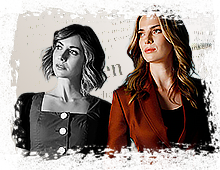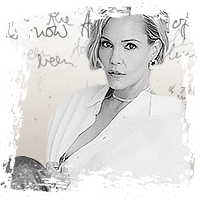

There’s an undeniable magnetism to actress and comedian Ayden Mayeri—whether she’s portraying an unhinged Pilates instructor or pasta-cult victim. Her most outrageous characters pulse with eccentric emotion, with performances across Veep, Spin Me Round, I Love That For You, Big Mouth, and, most recently, Mr. Throwback and Jackpot!
Mayeri met Spin Me Round lead and co-writer Alison Brie for the first time on Zoom. The night prior, a call to discuss a potential part in the film was arranged while Mayeri sat in a Scottsdale steakhouse across from her in-laws. She had yet to knock back a glass of wine, “but I was a little stoned,” she admits. An immediate drive home and frantic read-through of the script preceeded what ended up being a role-cinching call, eased in by a recommendation from Brie’s husband, Dave Franco.
Their work on the dark comedy, released in 2022, centered on the underbelly of an all-you-can-eat pasta chain. Following that, Brie had a strarring role in 2023’s rom-com Somebody I Used To Know, which was directed by Franco, and co-written by the pair. Mayeri and Brie are verging dangerously into “frequent collaborator” territory. As a busy year for each winds down, the two met for a candid conversation about breaking into the industry, Marvel stunt teams, the comedic brilliance of Molly Shannon, and where they might cross paths next.
Alison Brie: You’re just so goddamn funny. Also, anything you’re dropped into, you’re the scene stealer. Where does that come from? Do you think there’s a comedic seed in you? When was it planted?
Ayden Mayeri: I do know the answer to this, actually. I did a lot of theater as a kid, and there was this play. You know Aesop’s Fables?
Brie: Definitely, classic.
Mayeri: So it was just vignettes of Aesop’s Fables. There’s one where there’s a crow and a mouse and there’s cheese. The mouse is trying to get the cheese from the crow. I was working on it with my mom that week, and she used to do a lot of theater. She never did it professionally, but in college and stuff. And there was a moment where she told me, “What if you looked out to the audience and broke the fourth wall?” I think I was eight or nine, and she was like, “And make your own kind of wink to joke here.”
Brie: Oh my god, commenting on the material! Did you study improv later?
Mayeri: I did. I went to Cal State Fullerton for dramatic theater. I transferred in because I was a poli-sci major living in San Luis Obispo, and then my ex-boyfriend passed away, and it was very sudden. I was 20, and I was having a crisis of, What do I want to do with my life? And I had done so much theater and dance and all of that, but I didn’t think that was a real job. When he died, I guess nothing felt real. I was like, Well, if life is so fragile, I might as well do exactly what I want to do.
I transferred to Cal State Fullerton and was there for a year. So I was a year or two older than most of the kids. I made it past the first jury [for admittance to the theater program] and then there were 40 of us trying to get the position for 12. Two of my teachers separately cornered me and were like, “Hey, your acting style…” because I just wasn’t as theatrical as a lot of other performers. I was always more comfortable performing for the camera. My teachers were like, “It seems like you want to do film and TV. You’re not getting any younger.” I was just so dumb. I was 23. But they were like, “You could jury in and do two years of Greek tragedies and Shakespeare here, which I don’t think you want to do, or go to LA and go get started. Drop out of school.” And they were intimidating teachers that we all revered. So, I called my mom and I was like, “My teachers told me to drop out of college,” and she was like, “What?” I was like, “I’m moving to LA!”
Brie: Oh my god!
Mayeri: I moved to LA and we were learning Eric Morris techniques. He’s a Strasberg descendant. Very serious, very method-y bullshit. And that was a cult. But I was trying to take that seriously. And then I was like, “What if I took an improv class?”
Brie: I never studied improv but I did do a couple of classes. I was shitting myself. The audience says a word, and based on that word, you think of a funny story and then based on your story, they’re gonna do whatever that’s called. Instead, I just prepped myself before I went with a handful of funny stories from my childhood, and then waited for a word to be like, “Swimming? That reminds me of these gymnastics classes I used to take, what a coincidence!”
Mayeri: That’s so smart. I used to have the opposite approach when I started doing improv.
Brie: Well, it’s not improv.
Mayeri: But neither was what I was doing, because I eventually went to the Upright Citizens Brigade. The feedback from one of my teachers was, “Often, you step out from the back line to start a scene with no idea of what you’re gonna say, and sometimes you really find it and sometimes you don’t, and maybe you should work on having a plan of what you’re gonna say.” And I was like, “That is kind of my whole life, isn’t it?” I just step into it and I’m like, Well, what do I do?
Brie: I don’t think I’m a very good improviser, but I’m really good at staying in the reality of the scene and that’s all it is, right?
Mayeri: Yeah. Being present. You go where it needs to go because you’re in character.
Brie: And so do you!
Mayeri: That’s why it’s very fun to work with you because we both work like that.
Brie: Speaking of me, you’ve worked with a lot of great actors: super hot, smart, talented, funny. I could go on and on. How do you find different rhythms with people, or do you feel like you’re always soaking stuff up from people?
Mayeri: I mean, one is you, the way you process in character. But truly, when I came from comedy, every character I did, especially smaller ones where you get five lines and that’s all, you want to make an impression. But watching you lead a film in Italy and have to carry the whole film where every moment has to feel real, it can’t just be jokes every moment. You would process a thought instead of always talking—because I have the instinct to just talk, talk, talk the whole time. The cameras are so sensitive they can pick up on those thoughts. Molly Shannon, she taught me so much about how to make something funny because you mean what you say, not because you’re saying it funny.
Brie: She’s so committed. A lot of her characters are so passionate. Let’s talk about Jackpot!. First of all, I watched the movie. I loved it so much. It’s so fun. It felt refreshing in its total bananas nature. What did you think when you first read the script?
Mayeri: I immediately was like, I know exactly what I want to do with this character. Because she was the crazy roommate who’s trying to be an actor who’s overly familiar and inappropriate. I was like, I love this character. You know when you feel it? Weirdly, I had been saying I wanted to do a big action comedy. We used to have so many and don’t have them anymore, and I wish we were making them again.
Brie: Well, that’s great, because the next thing I want to talk about is the physicality of the role and the action in this movie. Every character in this movie gets to do action, everyone.
Mayeri: I did months of fight training in Atlanta. They flew me out a few weeks early, and then throughout the whole shooting, I was in fight training when I wasn’t shooting. They taught me how to fight with a katana sword and punching and kicking.
Brie: How did it make you feel?
Mayeri: So badass. The stunt team is incredible. They’re all Marvel people. I was so bad at first and near the end, they were like, “Wow, you actually got better. We weren’t sure if that was gonna happen.” Anyone that’s at their expert level of skill—whatever it is, woodworking, or stunts, or whatever—it’s so fascinating talking to them, because they’ve mastered it in an incredible way.
Brie: And then they’re choosing to teach it to others in a way that exemplifies so much patience and generosity. The thing you’re saying, it’s funny because it sort of is theater-y. It goes back to this, My body is just another tool to use for storytelling. I feel like this was a major theme when I worked on Glow. It was so fascinating talking to Chavo Guerrero Jr., our wrestling coach, who taught us everything. He would be like, “You guys don’t understand that in every wrestling match, you’re telling a story. That’s why there’s a good guy and a bad guy, but there have to be peaks and valleys. You can’t just jump in and the good guy is good at everything and the bad guy sucks.”
You have to tell a hero’s journey, and it made me feel so powerful. But also it helped my acting in terms of the give and take of it all. You have to be vulnerable sometimes to help make your scene partner look strong. You and I can’t both win the fight that we’re fighting against each other. There has to be an ebb and flow. It’s like in the Fast & Furious movies, how guys have in their contracts that they each have to have the same number of punches. That’s so boring, right? You have to fall down so you can get back up.
Mayeri: This was kind of getting a taste of that, where I’m like, I want to do more stunts. I loved it.
Brie: We talked about doing a stunt class here.
Mayeri: Well, you’re coming with me to JAM. It’s where they all train. And then you and I will do our Thelma and Louise.
Brie: That’s what it is. I also want to talk about you when you were younger. You have an upcoming album that you’re releasing?
Mayeri: Yes. Long story short, when I was 12, there were four of us, me and my neighborhood best friends: Jessica, Janet, and Mary. Mary’s mom, Robin, was a self-produced musician. She produced albums out of her guest room in suburbia. We had written a bunch of songs and we said, “Robin, do you think you could tape us singing our songs?” And she was like, “If we’re gonna do this, let’s really do it. I have a friend in Germany who gave me these music tracks he’s gonna throw out. So I’m gonna take the songs you wrote, rearrange them to these tracks, and record an album for you guys. Wouldn’t that be a fun project?” Then what came of it was such a dissonant, haunted sound, because we thought we were the Spice Girls. And with this German sound? It was very weird.
Brie: And how old were you all?
Mayeri: Twelve and 10. It was the year 2000. Picture this: Y2K is upon us, or it just happened, and everyone was fine. But we made this CD [as X-Cetra] that we thought was truly very embarrassing. We went to junior high and we’re like, “Let’s never talk about it again.” Cut to 2020 lockdown. Maybe someone found our CD in a thrift store and put it online on rateyourmusic.com, this place for obscure music. It had hundreds of comments. I had this weird little following and we were like, LOL. That’s so funny. People found our album.
Cut to last year while I was in Atlanta doing stunt training for Jackpot! We got a call from a record label and they were like, “We want to sign you guys to our label. We found you online. Our business model is that we find obscure music from past decades and we re-release it on vinyl as this new thing that no one’s ever heard.” “An alternate history of pop music” is what they call their business model. My friend was like, “Should we make a doc?” We started filming interviews. We got the band back together. We wrote a new song. The other girls aren’t in entertainment. It was like this cool project that brought us so close and had us revisit that time when we were not self-conscious. I’ve been so business and self-conscious, as one is, and now I just want to move to that feeling and have it all feel like X-Cetra. So anyway, we’re editing the doc and we’re submitting to Sundance, and I hope we go to Sundance.
Brie: Incredible. Well, to close: What would be your weapon of choice if you were entered into the Grand Theft Auto? You can’t use guns.
Mayeri: You can’t use guns in a psychotic way. This is the question that gets you into trouble when the whole interview has gone well.
Brie: I know, I’m gonna get canceled. I’m gonna say a flaming dildo.
Mayeri: Well, I was gonna say curling iron, because they’re so dangerous. You can hit someone with it and burn them.
Brie: In what way did you think curling iron was going to be controversial? Like you’re never gonna get a campaign now with a curling iron?
Mayeri: I just started to picture it, and it sounded so gross and bad and mean.
Brie: And then I said dildo.
Mayeri: I feel like the tip on fire really adds something. Like you want girth and you want flexibility. So like a real slap and then it sets them on fire.
Brie: Yes, of course. Well, it’s not gonna get better than that.
Source: Cultured



























